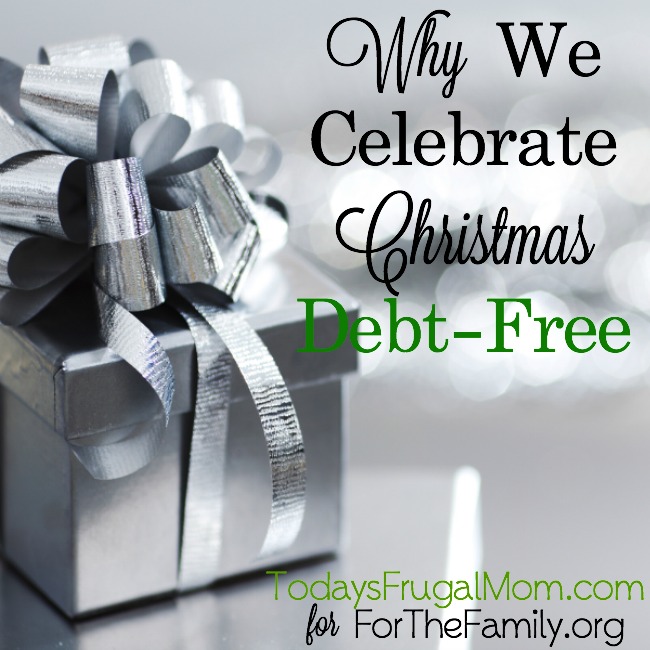One Word Most People Won’t Choose For 2017

2016 is officially over. It’s a new year. And a new year means the potential of a new you. Which is why so many people will enter 2017 by choosing a new word.
Just the other day someone asked me, “What is your word for 2017?” Silence. For a moment, I thought about responding with “survival.” But then I decided that would take a little too much explanation. Instead, I shrugged my shoulders and said, “I’m not sure yet.”
To be fair, I have chosen words in the past. Words like “faith,” “simplicity,” “endurance,” etc. I’ve chosen words individually and as a family. As a pastor, one year I chose a word for our church. Predictably, I chose “harvest.” Who doesn’t want to be in that season?!
Words bring clarity. Words bring focus. Words motivate us to change. Choosing a word, especially the right word, can be helpful. But what is it we really want when we are choosing a word for the year? What is it we are really after that our words reveal? When we choose a word, what we’re really saying is that we are after a certain kind of a life. Or at least the kind of like we think we need.
Our word of the year says a lot about the kind of life we want to live in the new year.
As I was reflecting on 2016, while looking ahead to 2017, I couldn’t help but think of a word that almost nobody ever chooses. We choose words like love, joy, thankfulness, contentment, and generosity. All great words. However, one word that likely will not be at the top of the list yet again this year, is the word death.
For obvious reasons, death doesn’t get chosen often, if ever. Yet one of the paradoxes of following Jesus is that death is necessary. It’s welcomed. Not because death is the goal, but because death is the means to experience the life God wants for us. We have to die to live. This is the heart of the good news. We were once dead in our sins, but now made alive in Christ (Ephesians 2). Death is not only how we begin the Christian life; death is how we continue to grow in the Christian life.
Jesus invites us into this new and abundant life (John 10:10) marked by increasing love, joy, peace, patience, kindness, goodness, faithfulness, gentleness, and self-control (Galatians 5:22-23). It is a life of dependence on our Father, where we are changed from the inside-out by the Holy Spirit. It is a life of opening more of our hearts to God’s love and truth. And yet it is a life we can’t get without first dying to ourselves.
In order to get the good life, the abundant life Jesus promised, we have to first lose our life. And we have to go on losing our lives. We have to learn to surrender. Crucify our flesh. Forsake our sin. Say goodbye to our need to be right or in control. All deaths. But they are the kind of deaths that lead to life.
This is why throughout the New Testament we are regularly commanded to die. Why? Because God has something more. Something better. The life Jesus wants for us is far better than the life we want for ourselves. Consider a few of the following:
Then he said to them all: “Whoever wants to be my disciple must deny themselves and take up their cross daily and follow me. For whoever wants to save their life will lose it, but whoever loses their life for me will save it (Luke 9:23-24).
For if you live according to the flesh, you will die; but if by the Spirit you put to death the misdeeds of the body, you will live (Romans 8:13).
I have been crucified with Christ and I no longer live, but Christ lives in me. The life I now live in the body, I live by faith in the Son of God, who loved me and gave himself for me (Galatians 2:20).
These are just a few of the great promises that life, abundant life, is ours on the other side of death. We can’t get more joy, peace, thankfulness, generosity, love, or contentment without dying. One comes before the other. If we want to live more, we have to die more. So, if you are struggling to choose a word for 2017, consider death.
It just might bring you more life than you expect in 2017…..
Blessings,
Patrick Schwenk






I get your point here Patrick and it a good one. Most would not choose the word death, not just because of what many would regard as unpleasant or distasteful connotations, but because so few understand what this particular death really is. I am under the conviction after seven decades of life here on earth that there was a principal of far overriding significance at work in the life of Jesus and in the Scriptures which reveals what is really intended in death to self and is almost routinely overlooked by Christians everywhere. It is the principal of personal vulnerability to God. You may find it more than a little disconcerting that I am a Catholic but I think you will agree that a great many Catholics seem to be a whole lot more vulnerable to their church than to our God. Even though I find death to self an extremely prominent promotion in the history of our church, often I have found it to be buried, often very deeply, in what appears to be an array of self serving clutter. I would suggest though that If you should postulate the question “Precisely what is this death recommended to us in scripture?” to 25 or 50 or100 true believers of any conviction, you would almost certainly get as many divergent answers even from the most astute. I would suggest that it is precisely here that lies the difficulty in choosing “death” as your word of the year. The word you choose should have a pretty universal understanding and application for all who employ it as you do. This is because the word “death” means so many things to so many people who encounter its usage. As an example, while I look forward to my own death and have done so eagerly for a number of years, most folks do not look forward to their death at all. In varying degrees people understand that death is the point of accomplishment of their certain or less than certain entry into Heaven. Furthermore, many have no clue what the life of Heaven into which they expect to enter actually is. Most, I think are in desperate hope that the scriptural reference of personal death is speaking of something less fearful than the death we so often expect. In order to understand the death being recommended to us in scripture, we must first understand why it is recommended and why we must choose to “die”. For that we must look to the recorded actions and dispositions of our Savior. It is true enough, Jesus did die and very unpleasantly at that, but we often neglect how and why He got to that outcome in the first place in our evaluation. Jesus did not come to earth as one of us to autonomously to undertake His own death for us. By His actions He was able to implement the requirements of our salvation in obedience to the Father, making the sustained communion with our Father enjoyed once by our first parents again possible for each of us. He was able to accomplish this only because He came among us taking upon Himself here on earth the same disposition of consummate vulnerability to the Father which had always governed Their communion. It was that absolute vulnerability to Father and the Father’s desires which enabled Jesus’ selfless act of obedience, His “death to self” if you will, which resulted in His accomplishment of our redemption. What changed in Jesus’ life on earth was not His obedience to the Father but His making Himself vulnerable to suffering and death for our sake never known to Him before as a result of that obedience. Jesus allowed Himself continuance in being absolutely vulnerable to the wishes of the Father and in doing so underwent a torturous death, was resurrected from that death, and then fully acclaimed us as fully restored and worthy sons and daughters of the Father to Him. We are now enabled, not of justification by our own merit, but of our entry as full communicants into the very sonship of our Savior Jesus. The death we are advised to undertake in scripture is our undertaking of the consummate vulnerability to God which our Savior Himself embraced and in doing so undertaking with Him the same communion enjoyed by Him with our Father. If we experience difficulty in becoming so vulnerable to God it is because we regard vulnerability itself as a weakness and well we most often should. Our vulnerability to the world, the flesh, and the devil will most certainly lead us from God. So little do we expect intimate communion with God that an expectation of personal vulnerability to Him would seem at best a distant hope and yet I have discovered that it is only in undertaking personal vulnerability to Him, that same vulnerability which defined the life and actions of our Savior, that our lives undergo entry into genuine communion with Him rather than being almost entirely about ourselves, our pursuits and our wellbeing. Our wellbeing arises from the embrace of our impoverished and sustained vulnerability to God, just as it did for Jesus. When you consider our pursuit of Heaven, even this is almost entirely a pursuit of our wellbeing and to a significant extent, little concerned about selfless pursuit of God. If we wish to pursue the death to self embraced by our Savior, we must first embrace the same consummate vulnerability to God that Jesus did, not for our sake but for His. Those doing so will soon come to understand that nothing of value is lost or even at risk in the embrace, without qualification, of our restored life with the Father. This is why, instead of the word “death”, I would strongly recommend the choice of the word “vulnerability”, as in vulnerability to God, as our encouragement to become sustained in disposing ourselves to the genuine result of the sacrifice made for us by Jesus.